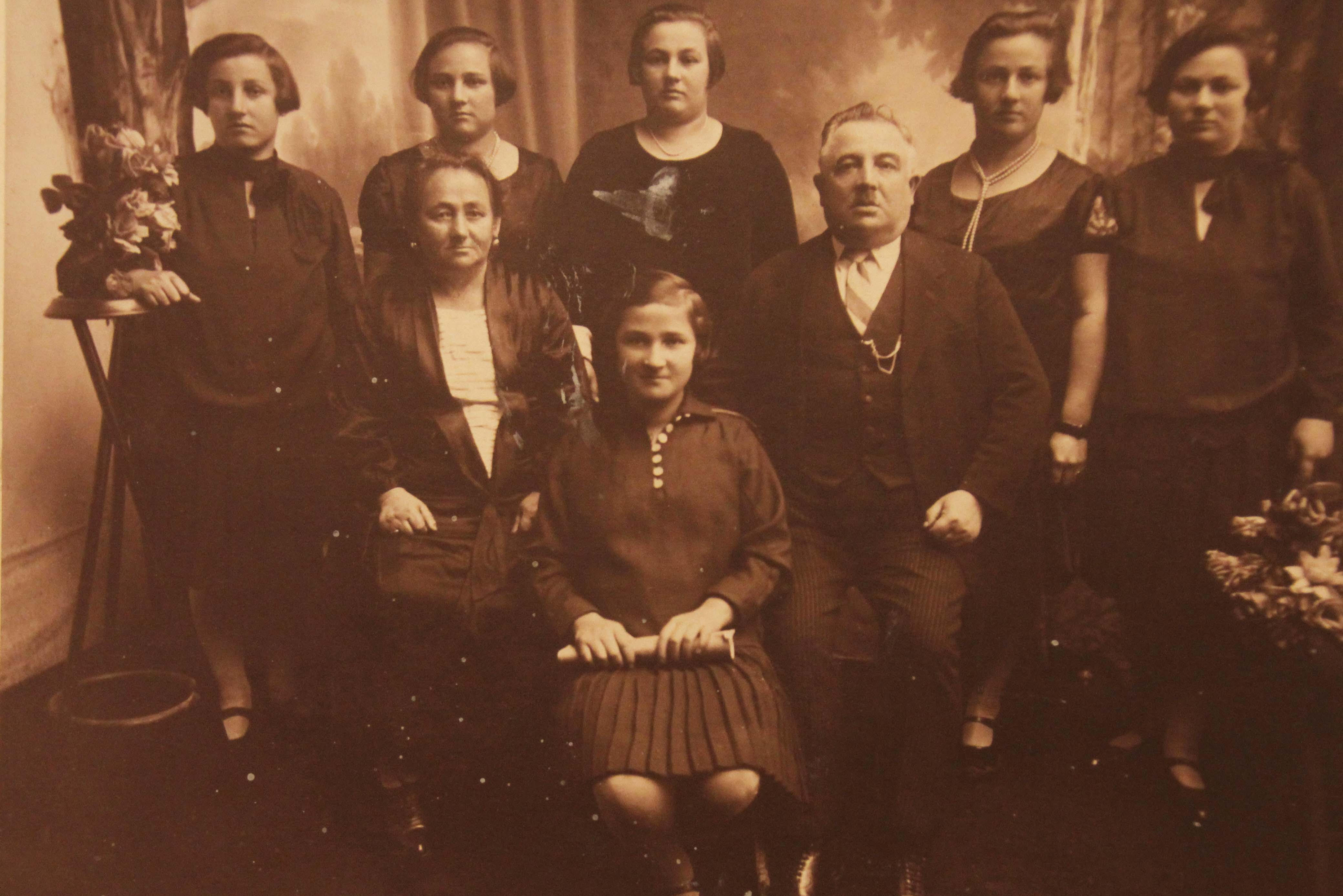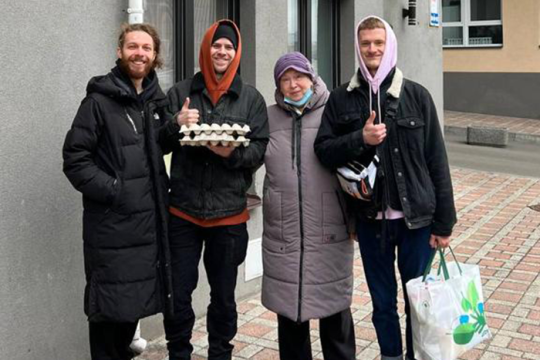
Amy Spitalnick is the executive director of Integrity First for America (IFA), the civil rights nonprofit behind Sines v. Kessler - the successful federal lawsuit against the neo-Nazis, white supremacists, and hate groups responsible for the violent "Unite the Right" rally in Charlottesville, Virginia in 2017. I sat down with Amy, the granddaughter of Holocaust survivors, to get her views on the significance of this lawsuit.
ReformJudaism.org In what ways did IFA spearhead the lawsuit?
Amy Spitalnick: We worked in partnership with an incredible pro bono legal team across different law firms led by Roberta Kaplan and Karen Dunn. IFA coordinated public engagement around the case and the broader issues it raises and provided direct financial support for expenses incurred in this litigation, and the biggest by far has been for security.
Have you and the team been subjected to death threats?
There have been threats of violence against the plaintiffs, our legal team, me, and IFA. These extremists use threats, harassment, and violence as a very deliberate strategy to scare people from trying to hold them accountable.
What legal strategy did your team employ to hold the two dozen defendants accountable for injuries sustained by the 9 plaintiffs in the lawsuit?
The jury found all defendants liable under a state conspiracy claim. A number of the defendants were held liable for racial, religious, and ethnic harassment and intimidation. The jury also found James Fields, the neo-Nazi who drove his car into the crowd, liable for assault and battery and intentional infliction of emotional distress. Every defendant was found liable for at least one claim, and the jury awarded multi-million-dollar judgments.
What was revealed in the trial about the intentions of the "Unite the Right" rally organizers?
Over the course of the 4-week trial, the jury heard overwhelming evidence laying out how meticulously the violence had been planned - and how it was motivated by racism and antisemitism. For example, the ex-girlfriend of one of the defendants testified that at a party she attended at the apartment of white supremacist and neo-Nazi Richard Spencer there had been an explicit discussion about using cars as weapons.
The jury heard evidence about how after the event the defendants celebrated the violence, calling the car attack "payback time," talking about how they sent all these "commies" to the morgues and the hospitals, and how James Fields did nothing wrong. From the beginning, the organizers planned a weekend of racist, antisemitic violence, what they called "the battle of Charlottesville" a "racial holy war."
What's the meaning behind the chant, "Jews will not replace us"?
It's the "Great Replacement" conspiracy theory, which posits that Jews are the puppet masters, orchestrating the replacement of the white race in America by supporting immigrants, refugees, and People of Color. Far-right extremists suggest this is a Jewish conspiracy to change our country's demographic landscape through a process of "white genocide." The danger of this ideology is obvious when we see Nazis with torches chanting "Jews will not replace us" - but it's also perilous in more subtle forms, increasingly normalized by far-right pundits and officials.
You've said that we cannot allow these white supremacist and fascist ideas to enter the mainstream. How real is that threat?
Very real. We are grappling with a scourge of hate crimes against minority religious and ethnic communities in this country over the past few years, all related to and part of a broader assault on democracy. And we are seeing some of these conspiracy theories and the use of extremism enter the mainstream more and more, as evidenced in the way local school board members, public health officials, and election officials are being threatened by violent extremists.
The jury awarded the plaintiffs $24 million in punitive damages and over $2 million in compensatory damages. How much does this judgment directly impact the defendants and how much can the 9 plaintiffs expect to receive?
Defendant Richard Spencer called our lawsuit "financially crippling." Other defendants talk about how it has effectively dismantled their organizations. We are committed to making sure that our plaintiffs can collect the final judgments. There are ways to do that, such as garnishing wages, putting liens on homes, and taking other steps to make sure that the defendants pay up and live up to their obligations here.
Do you think the outcome of this lawsuit will deter the defendants and other right-wing extremists from initiating similar violent demonstrations?
It's already having an impact. We've seen defendants and other conspirators talk about how this case effectively marginalized them, preventing them from going about their usual business, and precluding events that they considered organizing. This precedent makes it clear that there will be very real financial, legal, and operational consequences for extremist violence.
You've been called a "modern-day Nazi fighter." How is your work today connected to your family history?
I am the granddaughter of Holocaust survivors. For a long time, I thought of their stories as history, as a cautionary tale of the past, not particularly relevant to the moment in which we're living. When "Unite the Right" happened and we saw emboldened neo-Nazis marching through the streets holding torches and yelling "Sieg Heil," it was clear that the very same forms of hate that existed then continue to rear their ugly heads in new ways today.
We are not powerless to stop them. We have tools to take action and make clear that violent hate won't go without consequences. That is exactly what this case is about.
Related Posts

A Letter to the Jewish Community

Holy Sparks: Celebrating 50 Years of Women in the Rabbinate

